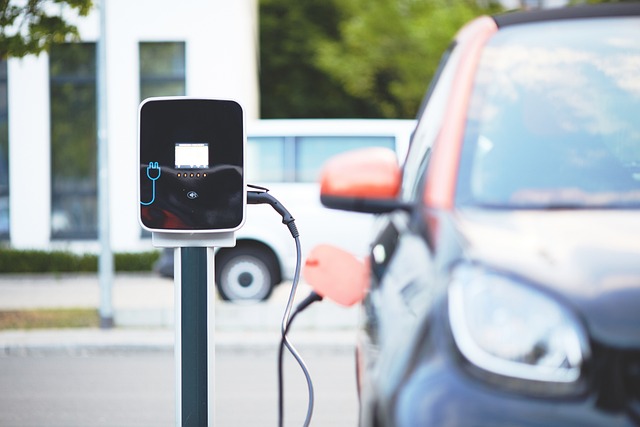The Electric Vehicle Revolution: Understanding Car Chargers and Home Charging Solutions
The rise of electric vehicles (EVs) has revolutionized the automotive industry, bringing with it a new era of sustainable transportation. As more drivers make the switch to electric cars, understanding the world of EV chargers and home charging solutions has become increasingly important. This article will explore the different types of car chargers available, the benefits of home charging, and how to choose the right charging solution for your electric vehicle.

-
Level 2 Chargers: These chargers use a 240-volt outlet, similar to what large appliances like dryers use. They can charge an EV much faster than Level 1 chargers, typically in 4-8 hours. Level 2 chargers are popular for home installation and are also commonly found in public charging stations.
-
DC Fast Chargers: Also known as Level 3 chargers, these are the fastest option available. They can charge an EV to 80% capacity in 20-30 minutes. However, they’re not typically used for home installation due to their high power requirements and cost. DC Fast Chargers are usually found at public charging stations and along highways.
What are the benefits of home charging for electric car owners?
Home charging offers several advantages for electric vehicle owners:
-
Convenience: Charging your EV at home means you can plug in overnight and wake up to a fully charged vehicle, eliminating the need to visit public charging stations frequently.
-
Cost-effectiveness: Home electricity rates are often lower than public charging station fees, making it more economical to charge at home.
-
Reliability: With a home charger, you’re not dependent on the availability or functionality of public charging stations.
-
Customization: You can choose a charging solution that best fits your vehicle’s needs and your home’s electrical capacity.
-
Increased property value: Installing an EV charger can be an attractive feature for potential homebuyers if you decide to sell your property in the future.
How do wallbox chargers work, and why are they popular?
Wallbox chargers are a type of Level 2 charger designed for home use. They’re mounted on a wall, either inside a garage or on an exterior wall, and are hardwired to your home’s electrical system or plugged into a 240-volt outlet.
Wallbox chargers have gained popularity for several reasons:
-
Faster charging: They provide significantly faster charging times compared to Level 1 chargers.
-
Smart features: Many wallbox chargers come with WiFi connectivity, allowing users to monitor charging status, schedule charging times, and even integrate with home energy management systems.
-
Compact design: Wallbox chargers are typically sleek and compact, taking up minimal space in your garage or on your exterior wall.
-
Safety features: They often include advanced safety features such as ground fault protection and over-temperature protection.
-
Weather-resistant: For outdoor installation, wallbox chargers are designed to withstand various weather conditions.
What factors should you consider when choosing a home charging solution?
When selecting a home charging solution for your electric vehicle, consider the following factors:
-
Charging speed: Determine how quickly you need to charge your vehicle based on your daily driving habits and the EV’s battery capacity.
-
Vehicle compatibility: Ensure the charger is compatible with your specific electric car model.
-
Installation requirements: Consider the electrical capacity of your home and any necessary upgrades to support the charger.
-
Smart features: Decide if you want additional features like smartphone connectivity or integration with home energy systems.
-
Cost: Factor in both the upfront cost of the charger and installation, as well as potential long-term savings on charging costs.
-
Portability: If you might move in the future, consider a plug-in charger that can be easily relocated.
| Product | Provider | Key Features | Cost Estimation |
|---|---|---|---|
| ChargePoint Home Flex | ChargePoint | Adjustable amperage, WiFi connectivity, Energy Star certified | $699 |
| JuiceBox 40 | EnelX | 40 amp output, voice control, load balancing | $669 |
| Tesla Wall Connector | Tesla | Sleek design, up to 44 miles of range per hour, power sharing | $400 |
| Grizzl-E Classic | United Chargers | Rugged design, 40 amp output, low price point | $459 |
| Wallbox Pulsar Plus | Wallbox | Compact size, power sharing, Bluetooth and WiFi | $649 |
Prices, rates, or cost estimates mentioned in this article are based on the latest available information but may change over time. Independent research is advised before making financial decisions.
How can you maximize the efficiency of your home EV charging setup?
To get the most out of your home charging solution:
-
Time your charging: Take advantage of off-peak electricity rates by scheduling charging during low-demand hours.
-
Use solar power: If you have solar panels, try to charge your EV during daylight hours to utilize clean, renewable energy.
-
Maintain your charger: Regularly inspect your charging equipment for signs of wear and tear, and keep it clean.
-
Monitor your usage: Use the smart features of your charger to track your energy consumption and adjust your habits accordingly.
-
Optimize your home’s energy efficiency: Implementing other energy-saving measures in your home can help offset the additional electricity used for EV charging.
As electric vehicles continue to gain popularity, understanding and implementing efficient home charging solutions becomes increasingly important. By choosing the right charger and optimizing your charging habits, you can enjoy the convenience and cost-effectiveness of owning an electric car while contributing to a more sustainable future.





